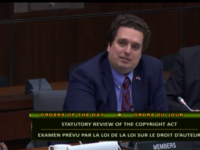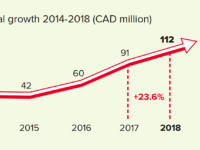David Graham was not your typical Member of Parliament. A Liberal MP from the Quebec riding of Laurentides-Labelle, Graham brought a background in open source issues to Parliament Hill. Over his four years as an MP, Graham was seemingly everywhere when it came to digital policy. Whether in the House of Commons talking net neutrality, the Industry committee copyright review or the Ethics committee work on privacy, Graham emerged as the rare MP equally at home in the technology and policy worlds. Graham’s bid for re-election fell short, but this week he joins the Lawbytes podcast to reflect on his experience in Ottawa with thoughts on copyright, privacy, technology policy, and the use of digital tools for advocacy purposes.

Fair Dealing by Giulia Forsythe (CC BY-NC-SA 2.0) https://flic.kr/p/dRkXwP
Copyright
Federal Court Short-Circuits Voltage Pictures’ Canadian File Sharing Class Action Copyright Lawsuit Strategy
The Federal Court of Canada has strongly rejected an attempt by Voltage Pictures, one of Canada’s most litigious copyright companies, to use a reverse class action lawsuit approach to sue potentially thousands of Canadians. The court ruled that Voltage met none of the requirements for class action certification and in the process confirmed doubts that merely pointing to an IP address is sufficient grounds for a copyright infringement claim. The Voltage strategy was launched in 2016 as it sought certification of the class, a declaration that each member of the class had infringed its copyright, an injunction stopping further infringement, damages, and costs of the legal proceedings (the issues were discussed in this Lawbytes podcast episode with James Plotkin).
CISAC Labels Canada a “Digital Champion” for Digital Music Royalty Growth
The Canadian music industry has engaged in extensive lobbying efforts on copyright invariably pointing to concerns regarding revenues from digital music services. But the International Confederation of Societies of Authors and Composers (CISAC), which brings together 239 collective management organizations in 122 countries and five regions, recently released a global report that told a much different story, calling Canada a digital champion given the share of royalty revenues coming from digital services. CISAC represents over four million creators active in five major repertoires: audiovisual, dramatic, literature, music and visual arts. Its report identifies five digital champions within its top 20 global markets. Canada sits third in terms of both digital share and five year growth.
Episode 30: “It’s Only Going to Get More Important” – Amanda Wakaruk and Jeremy deBeer on Crown Copyright in Canada
The Canadian copyright review conducted earlier this year heard evidence on a remarkably broad range of issues. One issue that seemed to take committee members by surprise was crown copyright, which captured considerable attention and became the subject of two supplemental opinions from the Conservative and NDP members as well as the basis for a private members bill from NDP MP Brian Masse. Why all the interest in crown copyright?
This week’s Lawbytes podcast digs into crown copyright with two guests. First, Amanda Wakaruk, a copyright librarian at the University of Alberta and one of the country’s leading advocates on the issue joins me to explain the concept of crown copyright and why she thinks it needs to be abolished. I’m then joined by my colleague Professor Jeremy DeBeer to discuss the recent Supreme Court of Canada decision on Keatley Surveying v. Teranet, which was on the first opportunities for Canada’s highest court to grapple with the scope and implications of crown copyright.
What Comes Next for Canadian Digital Policy Under a Liberal Minority Government?
In the closing months of the last Liberal majority government mandate, I spoke to a government official about the lessons learned from the prior four years. Their response? If we knew then what we know now, we would have moved much faster on policy. The four years moves very quickly and if you don’t manage to lay the groundwork and introduce proposed legislation within the first 12 – 24 months, it becomes very difficult to enact given competing policy priorities, demands on committee time, Senate review, and a myriad of other challenges.
As I think about what comes next for Canadian digital policy under the new Liberal minority government, those words strike me as more relevant than ever. Even if the government runs more like a majority than a minority (which certainly seems likely on digital policy as no one is forcing an election over privacy or wireless pricing), the same ministers return to their portfolios (which may or may not happen) and the same committee structures return largely unchanged (which will not happen since that INDU chair Dan Ruimy was not re-elected), picking up where the government left off in June will not be easy. Further, the Liberal platform provides the roadmap for future reforms, but moving rapidly on these issues – particularly given expectations that a minority government’s mandate may run shorter than a majority – suggests that quick wins will be preferred to extensive legislative reform.
So what are likely next steps on digital policy?











